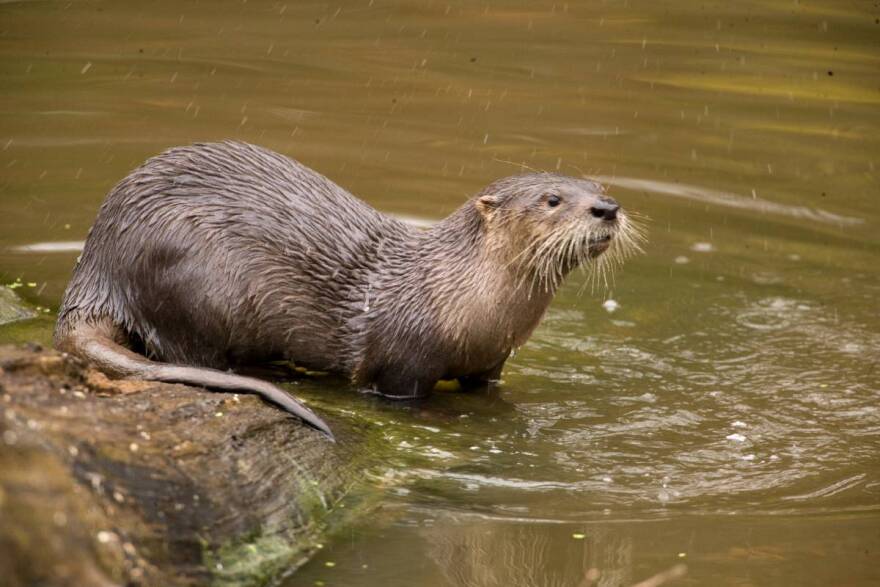This week on Discover Nature, watch for river otters on frozen water.
Well suited for life in water, otters have streamlined bodies, fully webbed feet, and long, tapered tails. Dense, oily fur and heavy layers of body fat keep them insulated.
Otters are graceful, powerful swimmers and can remain submerged for three to four minutes. On land, they travel with a loping gait, and on snow or ice, they alternate loping with sliding.
River otters live in streams, rivers, and lakes, usually bordered by forest. They burrow under large tree roots, rocky ledges, fallen trees, or thickets, often in former homes of muskrats, beavers, and woodchucks.
A century ago, otters were nearly eliminated from Missouri due to unregulated harvest. Thanks to restoration efforts, and improved stream conditions, otters have made a comeback across our state.
Otters help control aquatic prey populations, and, in turn, are eaten by bobcats, coyotes, and other large predators.
Keep an eye on the waterline this week, and watch for these playful furbearers’ antics on ice.
Learn more about Missouri’s river otters and where to see them with the Missouri Department of Conservation’s online field guide.
Discover Nature is sponsored by the Missouri Department of Conservation.





